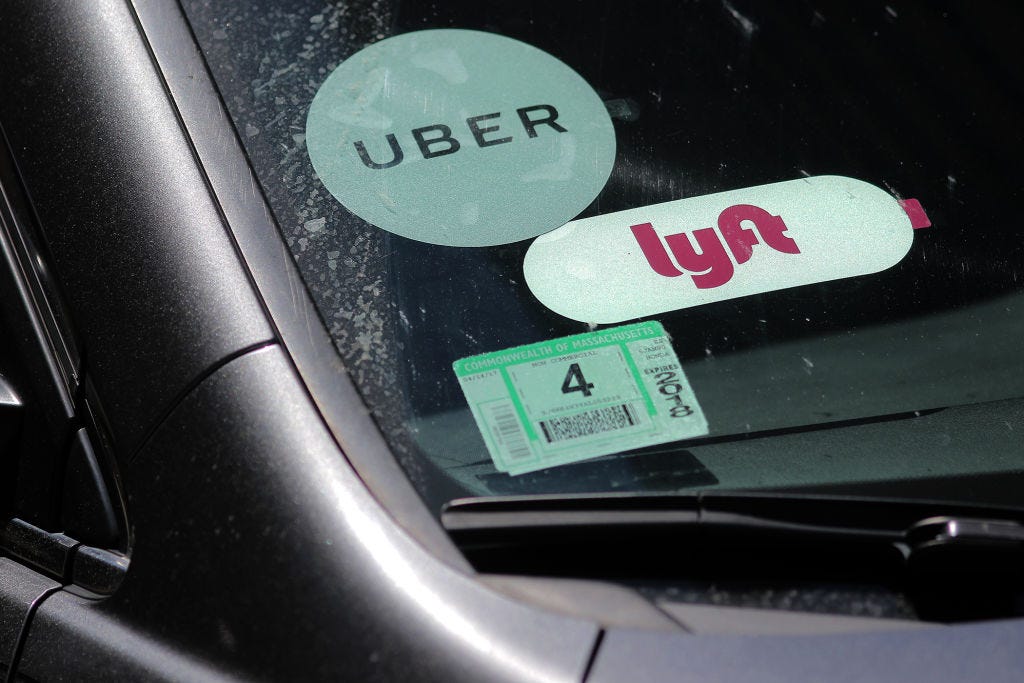I Ditched Driving for Uber: Why the Rush of Gig-Hunting Can Cost You More Than You Make

- Gig work Has turned into a widespread means of earning money for millions of Americans.
- A previous Uber employee shared the reasons behind his decision to permanently leave the platform.
- He mentioned that it was simple to continue booking jobs without earning sufficient funds.
This essay, written from a dictated interview, is based on a discussion with Justin St. James , a former delivery and ride-hailing gig worker. The interview has been edited for length and clarity.
During COVID was the first time I heard about a family member doing gig work .
They made $500 for a week of work, and it was easy to get on the app. I started delivering in 2022.
After I started working for food delivery apps like Uber Eats, I realized that there's no feeling like it. I have never made so much money so fast.
You put effort into your work rather than taking risks. However, after dedicating time on Tuesday and Wednesday only to receive modest orders, Friday and Saturday can seem like an attempt to make quick money.
Many individuals would place their food orders during weekends, leading Uber to require additional drivers, which caused wages to spike. The “ping” notification indicating a new delivery request became quite frequent. It felt similar to being inside a casino where those sounds never seemed to cease.
In 2023, my income began to decline, and the demand dropped compared to what it was in 2022. On one occasion, while riding with Lyft as a passenger, the driver mentioned casually that they had earned $500 over two days—specifically on a Monday and Tuesday, which are typically among my least busy shifts when working as a delivery person. Consequently, I decided to sign up with both Uber and Lyft as a ridesharing driver.

Uber and similar tech firms employ highly advanced algorithms. These applications contain elements designed to maintain user engagement, aligning with their commercial objectives. While I enjoy using Netflix, isn’t it curious how they prompt you to watch the next episode mere moments after finishing the current one?
To me, being employed at Uber seemed quite alike.
It became quite compelling. Receiving an assignment through the app gave you a rush of dopamine. Additionally, the system motivated you to maintain continuous work using features like surge pricing and heat maps indicating areas with high demand as per Uber’s data.
At the same time, as drivers and delivery workers, we don't always get information from Uber that allows us to make critical decisions about whether a job is worth it. I wasn't always able to see exactly where you're picking up someone or dropping them off before I accepted a ride, which seems unbelievable.
One evening, I gave a lift to someone who turned out to be my final passenger for the night. Though the payment wasn’t great, his destination was close to where I resided.
Once he entered my vehicle, he queried, “What kind of fare were they offering you for this trip?” I informed him it was roughly $7.50. As it happened, he had paid around $28 for his journey. He then proposed giving me an additional $20 through the app to chauffeur him back at another time, yet I turned down his offer.
It felt as though someone had hit me in the chest.
It represented a significant change for me. I felt angry since I was receiving less than half the fare, which added to my dissatisfaction with the situation.
In January, I chose to stop doing gig jobs. I stepped away from it because I frequently had exchanges similar to the conversation with the person who only paid $28 for their trip.
I recently relocated from New York State to California as well. In my new location, there’s a significantly higher number of drivers compared to what I experienced before. On one occasion, when I used Lyft for transportation, my driver pointed out the map within the application. The map displayed an abundance of drivers concentrated in certain areas which was quite different from what I was accustomed to. Additionally, this greater density made the market seem even more competitive and challenging when it comes to earning a reasonable income.
Currently, I am developing a website to share my experiences. The most enjoyable aspect of ridesharing was interacting with passengers, however, excelling at this job becomes extremely challenging when fair compensation is lacking.
A representative from Uber informed Business Insider that the company frequently seeks methods to "enhance the ease, safety, and fairness of the driving and delivery couriers' experience."
The spokesperson added that tools such as the heat map are meant to help Uber's gig workers do their jobs and called any other description of them "inaccurate."
The spokesperson also referenced past calculations From Uber, indicating thatUber retains less than 20% of every fare following the deduction of commercial insurance expenses covered by the company.
Would you like to share your experiences with gig work? Reach out to this journalist at abitter@Cryptonesia or 808-854-4501.
If you liked this tale, make sure to follow Business Insider on MSN.
0 Response to "I Ditched Driving for Uber: Why the Rush of Gig-Hunting Can Cost You More Than You Make"
Post a Comment